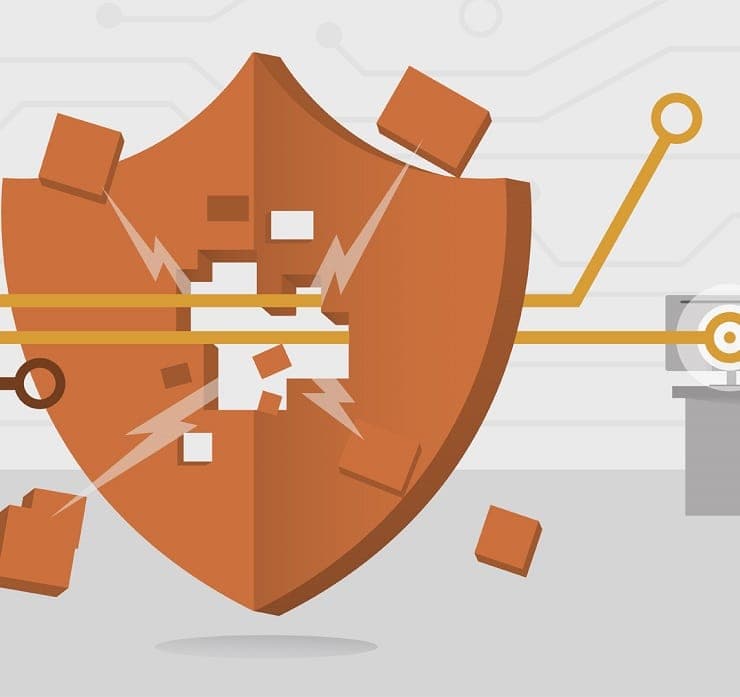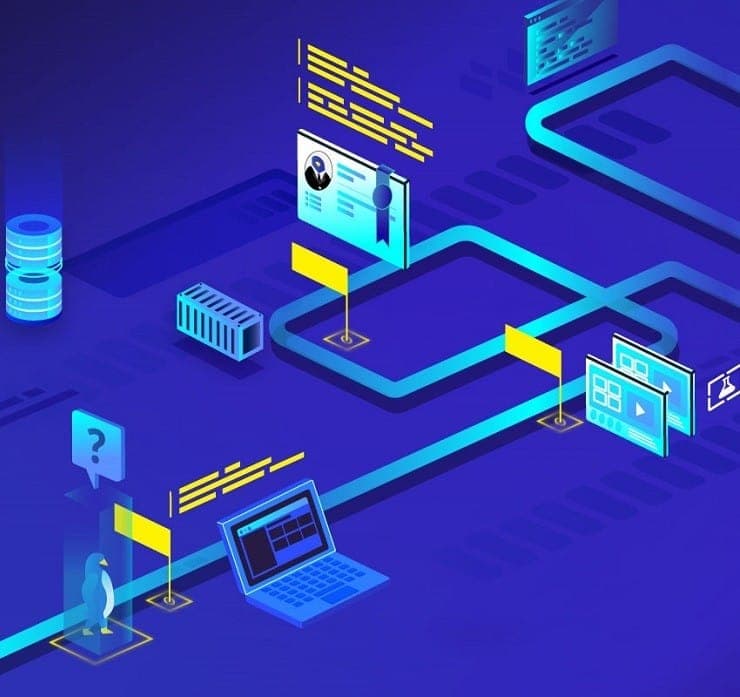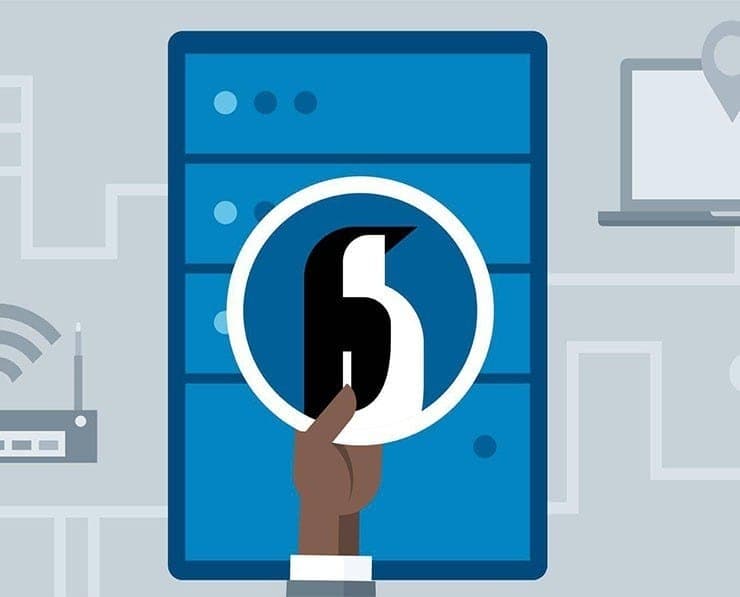Student Feedback
PT0-001: CompTIA PenTest+ Certification Exam Certification Video Training Course Outline
Introduction
Domain 1: Planning and Scoping
Domain 2: Information Gathering ...
Introduction
PT0-001: CompTIA PenTest+ Certification Exam Certification Video Training Course Info
Pass CompTIA Pentest+ PT0-001 on First Attempt: Complete Online Certification Course
Master CompTIA Pentest+: Complete Course to Ace the PT0-001 Exam
What You Will Learn From This Course
• Plan and scope a penetration testing project from start to finish
• Understand the penetration testing methodology to conduct thorough information gathering and vulnerability analysis
• Learn how to exploit systems ethically during a penetration testing project
• Implement strategies to ensure business continuity, fault tolerance, and disaster recovery
• Identify application and coding vulnerabilities and explore development and deployment practices to mitigate risks
• Prepare professional reports and communicate findings effectively
• Practice targeted exercises to reinforce knowledge and skills necessary for the CompTIA Pentest+ PT0-001 certification
Learning Objectives
The primary goal of this course is to equip students with the knowledge and hands-on skills required to excel in penetration testing and succeed in the CompTIA Pentest+ PT0-001 exam. By the end of this course, students will be able to plan, execute, and report penetration testing engagements confidently. The learning objectives include understanding the full penetration testing lifecycle, mastering vulnerability assessment techniques, learning exploitation strategies, and preparing professional penetration testing documentation. Students will also develop the skills necessary to address modern IT environments, including cloud and mobile platforms, in addition to traditional desktop and server systems.
This course emphasizes practical application, ensuring that students not only learn theory but also gain experience applying techniques in realistic scenarios. The learning objectives are designed to develop both technical expertise and professional reporting skills, enabling students to communicate findings clearly to stakeholders and decision-makers.
Target Audience
This course is intended for cybersecurity professionals, penetration testers, network engineers, web security specialists, application security experts, IT administrators, and ethical hackers seeking to enhance their knowledge and practical skills in penetration testing. Individuals aiming to pass the CompTIA Pentest+ PT0-001 certification will find this course particularly valuable. The course is also suitable for professionals who want to strengthen their understanding of security assessment methodologies, vulnerability identification, exploitation techniques, and secure development practices.
Beginners with foundational knowledge in IT security can also benefit, as the course provides structured guidance from basic concepts to advanced practical applications. Professionals working in cybersecurity, information security, or related fields who want to gain hands-on experience in penetration testing and reporting will find the content highly relevant and applicable to real-world scenarios.
Requirements
To get the most out of this course, students should have a basic understanding of networking, operating systems, and cybersecurity concepts. Familiarity with IT infrastructure and security terminology will help students grasp the concepts more effectively and follow along with practical exercises. While the course starts with foundational pentesting knowledge, hands-on exercises may require students to navigate virtual labs or simulated environments.
Students should be prepared to actively engage with the course content, complete practical exercises, and practice using penetration testing tools and techniques. Access to a computer with the ability to run virtual environments or labs is recommended to maximize the learning experience. Students should also have a willingness to learn ethical hacking methodologies and adhere to legal and professional standards when performing security assessments.
Prerequisites
While there are no strict prerequisites for this course, having basic IT knowledge is beneficial. A foundational understanding of networking concepts, operating systems (Windows, Linux, and mobile platforms), and cybersecurity principles will help students follow the course content more efficiently. Familiarity with concepts such as IP addressing, TCP/IP protocols, firewalls, and basic scripting or command-line skills can enhance comprehension of penetration testing techniques.
Students who have prior exposure to ethical hacking, security assessment tools, or cybersecurity certifications such as CompTIA Security+ or Network+ will find it easier to grasp advanced topics. However, even students without formal certifications can successfully complete this course, as it provides step-by-step guidance from basic to intermediate pentesting skills.
Description
Penetration testing, commonly known as pentesting, is the practice of evaluating the security of an IT environment by simulating real-world attacks. The goal of a penetration test is to identify vulnerabilities, assess risks, and provide actionable recommendations to improve security posture. This course introduces students to the concepts, methodologies, and practical skills required to perform effective penetration tests across diverse environments.
Students will learn the different types of penetration tests, including black-box, white-box, and gray-box testing, and understand when each type is appropriate. The course will also cover legal and ethical considerations, ensuring that all testing is performed within established laws and organizational policies. Understanding the legal framework is critical for any professional performing penetration tests to avoid unintended consequences or violations of regulations.
Planning and Scoping a Penetration Test
A critical step in penetration testing is planning and scoping the engagement. Students will learn how to define the objectives, scope, and rules of engagement for a penetration test. This includes identifying the systems, networks, and applications to be tested, understanding organizational requirements, and determining the level of testing required. Proper planning ensures that tests are effective, efficient, and compliant with legal and regulatory requirements.
The course will guide students through creating a penetration testing plan that includes timelines, resource allocation, risk assessment, and communication strategies. Students will learn how to collaborate with stakeholders, understand their requirements, and manage expectations while conducting penetration testing engagements. Effective planning sets the foundation for a successful assessment and ensures that findings are actionable and valuable to the organization.
Information Gathering and Vulnerability Assessment
Information gathering is a fundamental phase of penetration testing. Students will learn how to collect and analyze data about target systems, networks, and applications. Techniques include passive reconnaissance, active scanning, and utilizing public information sources. This phase is critical to identify potential attack vectors, understand system architecture, and discover vulnerabilities that can be exploited during testing.
Vulnerability assessment involves identifying, categorizing, and prioritizing security weaknesses within the environment. Students will learn how to use automated scanning tools and manual techniques to evaluate system security, understand risk implications, and determine which vulnerabilities present the greatest threat. Combining information gathering with vulnerability assessment provides a comprehensive understanding of the security landscape, allowing students to plan effective exploitation strategies.
Exploitation Techniques and Risk Mitigation
The course introduces students to ethical exploitation techniques, teaching them how to safely test the effectiveness of security controls. Students will explore methods to exploit vulnerabilities in a controlled and responsible manner to demonstrate risk without causing harm. Emphasis is placed on understanding the impact of each action and documenting results accurately.
Students will also learn about risk mitigation strategies, including secure coding practices, patch management, and system hardening. By understanding how vulnerabilities arise and how to remediate them, students gain a holistic view of cybersecurity, bridging the gap between technical testing and organizational security practices.
Reporting and Communication
Effective communication of findings is an essential skill for penetration testers. This course covers best practices for preparing detailed reports that convey technical information clearly and concisely to different audiences, including executives, technical teams, and stakeholders. Students will learn how to present findings, provide actionable recommendations, and support organizational decision-making.
Course Modules / Sections
The CompTIA Pentest+ PT0-001 course is divided into structured modules designed to provide a comprehensive understanding of penetration testing concepts, techniques, and practical applications. Each module builds on the previous one, ensuring a progressive learning experience that balances theory with hands-on practice.
The first module introduces the foundations of penetration testing. Students will learn about different types of penetration tests, legal and ethical considerations, and the overall methodology for conducting assessments. This module sets the stage for all subsequent learning, providing students with a clear understanding of the expectations and responsibilities of a penetration tester.
The second module focuses on planning and scoping penetration testing engagements. Students will learn to define the objectives, scope, and rules of engagement, including identifying systems, networks, and applications to be tested. This module emphasizes proper planning, resource allocation, and risk assessment to ensure that penetration tests are conducted efficiently and within legal and organizational guidelines.
The third module dives into information gathering and reconnaissance. Students will explore techniques for collecting intelligence about target systems, networks, and applications. Both passive and active reconnaissance strategies are covered, teaching students how to analyze data effectively to identify potential attack vectors and vulnerabilities.
The fourth module covers vulnerability assessment. Students will learn to identify, categorize, and prioritize security weaknesses. This module provides an in-depth understanding of both automated and manual vulnerability assessment techniques, helping students determine which vulnerabilities pose the greatest risk and require immediate attention.
The fifth module introduces exploitation techniques. Students will explore methods to ethically exploit discovered vulnerabilities to test the effectiveness of security controls. The module focuses on responsible exploitation, ensuring that students understand the potential impact of their actions while gathering evidence for reporting.
The sixth module addresses risk mitigation strategies. Students will learn about secure coding practices, system hardening, patch management, and other methods to remediate vulnerabilities. By understanding mitigation techniques, students gain a holistic perspective on cybersecurity, linking technical testing skills with organizational security practices.
The seventh module emphasizes reporting and communication. Students will learn how to create comprehensive penetration testing reports, convey technical findings to diverse audiences, and provide actionable recommendations. This module also covers best practices for executive briefings, documentation standards, and communicating risk to stakeholders.
The final module integrates all learning through practical labs and assessments. Students will apply the concepts learned in previous modules to realistic scenarios, simulating end-to-end penetration testing engagements. This integration ensures that students are prepared for both the CompTIA Pentest+ PT0-001 exam and real-world penetration testing assignments.
Key Topics Covered
This course covers a broad spectrum of topics necessary to master penetration testing and achieve CompTIA Pentest+ certification. Students will gain expertise in multiple areas, ranging from foundational knowledge to advanced techniques.
The first key topic is penetration testing methodology. Students will learn the step-by-step process of conducting penetration tests, including planning, reconnaissance, assessment, exploitation, and reporting. This foundational knowledge is critical for structuring tests effectively and ensuring all necessary components are addressed.
Information gathering is a major topic covered in the course. Students will explore techniques for passive reconnaissance, such as gathering data from public sources, and active reconnaissance, including network scanning and enumeration. The ability to collect and analyze relevant information is essential for identifying potential attack vectors and understanding system configurations.
Vulnerability assessment is another core topic. Students will learn to identify vulnerabilities across systems, applications, and networks. The course covers both automated scanning tools and manual assessment techniques, helping students understand how to evaluate risks and prioritize remediation efforts.
Exploitation techniques are extensively covered. Students will learn how to ethically exploit vulnerabilities to test security controls and demonstrate risk. Topics include exploiting operating systems, applications, network devices, and mobile platforms. Emphasis is placed on safe and controlled testing to prevent unintended damage.
Application and coding vulnerabilities are also addressed. Students will gain insight into common programming flaws, such as input validation errors, authentication weaknesses, and insecure data handling. The course highlights development and deployment practices that mitigate these vulnerabilities and improve overall security posture.
Risk mitigation strategies are a critical component of the curriculum. Students will learn how to implement security controls, apply patches, harden systems, and adopt secure development practices. Understanding mitigation is essential for linking testing results to actionable recommendations that enhance organizational security.
Reporting and communication skills are key topics in this course. Students will learn to prepare professional penetration testing reports, present findings to technical and non-technical audiences, and provide actionable recommendations. Clear communication ensures that vulnerabilities are understood and addressed appropriately by stakeholders.
Legal and compliance considerations are integrated throughout the course. Students will understand relevant laws, regulations, and industry standards, ensuring that all testing activities are conducted ethically and legally. This knowledge is crucial for protecting both the tester and the organization.
Hands-on practice and lab exercises are a central theme. Students will apply learned concepts in controlled environments to simulate real-world penetration testing scenarios. These practical exercises reinforce theory and provide the experience necessary to tackle the CompTIA Pentest+ PT0-001 exam confidently.
Teaching Methodology
The teaching methodology of this course combines theory, practical exercises, and real-world examples to deliver a comprehensive learning experience. Each module includes detailed explanations of concepts, step-by-step demonstrations, and practical exercises to reinforce understanding.
Instruction is delivered through a combination of video lectures, guided labs, and interactive exercises. Video lectures provide in-depth coverage of technical concepts and methodologies, while guided labs allow students to practice skills in safe and controlled environments. Interactive exercises encourage active participation, ensuring students can apply knowledge immediately.
Practical scenarios are a core component of the methodology. Students are presented with realistic penetration testing environments and challenged to identify vulnerabilities, exploit weaknesses, and produce detailed reports. This experiential approach enhances problem-solving skills and ensures that students gain confidence in applying techniques to real-world situations.
The course also emphasizes continuous feedback. Instructors provide guidance on lab exercises, highlight common mistakes, and offer tips for improving performance. This feedback loop helps students refine their skills and develop a deeper understanding of penetration testing concepts.
Conceptual learning is paired with hands-on application to ensure students not only understand theory but also know how to implement it effectively. By integrating both approaches, the course prepares students for the practical challenges of penetration testing and the requirements of the CompTIA Pentest+ PT0-001 exam.
Self-paced learning is encouraged, allowing students to progress through the material at their own speed. Supplementary resources, including practice questions, reference materials, and lab exercises, provide additional opportunities to reinforce learning. This flexible approach accommodates different learning styles and schedules.
Collaborative learning opportunities are incorporated where possible. Students can engage in discussion forums, share insights, and learn from peer experiences. This interaction promotes deeper understanding and allows students to see multiple perspectives on solving penetration testing challenges.
The teaching methodology also emphasizes ethical considerations. Students learn not only how to identify and exploit vulnerabilities but also how to conduct assessments responsibly, respect organizational policies, and comply with legal standards. This approach ensures that students develop professional, ethical, and practical skills that are highly valued in the cybersecurity field.
Assessment & Evaluation
Assessment and evaluation are integral components of the course, ensuring that students can measure their understanding and track progress. Multiple forms of assessment are used, including hands-on lab exercises, scenario-based exercises, and practice questions aligned with the CompTIA Pentest+ PT0-001 exam objectives.
Lab assessments allow students to demonstrate practical skills in simulated penetration testing environments. These exercises evaluate the student’s ability to plan and scope tests, gather information, identify vulnerabilities, exploit weaknesses ethically, and document findings accurately. Lab results provide immediate feedback, enabling students to correct mistakes and improve techniques.
Scenario-based exercises present realistic situations in which students must apply learned concepts to solve problems. These exercises mimic real-world penetration testing engagements, requiring students to integrate multiple skills, make decisions under constraints, and prioritize actions based on risk assessment. Scenario assessments help bridge the gap between theory and practical application.
Practice questions are included to prepare students for the CompTIA Pentest+ PT0-001 certification exam. Questions are designed to test knowledge across all domains of the exam, including planning, reconnaissance, vulnerability assessment, exploitation, reporting, and risk mitigation. Regular practice ensures that students are familiar with exam formats and types of questions they may encounter.
Progress evaluation is continuous throughout the course. Students receive feedback on lab performance, exercises, and quizzes, helping them identify areas of strength and areas needing improvement. This ongoing evaluation encourages consistent learning and skill development.
Final assessments integrate all course learning objectives. Students complete comprehensive exercises that simulate end-to-end penetration testing engagements, requiring them to apply planning, reconnaissance, assessment, exploitation, reporting, and mitigation skills. Successful completion of these assessments demonstrates readiness for both the CompTIA Pentest+ PT0-001 exam and real-world penetration testing projects.
Through this structured assessment and evaluation approach, students gain confidence in their abilities, ensure mastery of critical skills, and are well-prepared to advance their careers as certified penetration testers.
Benefits of the Course
Enrolling in this CompTIA Pentest+ PT0-001 course provides numerous benefits for both aspiring and experienced cybersecurity professionals. One of the primary advantages is gaining a comprehensive understanding of penetration testing methodologies. Students learn to plan, execute, and report assessments effectively, ensuring they can identify vulnerabilities and implement mitigation strategies. This knowledge is essential for organizations seeking to strengthen their security posture and reduce the risk of cyberattacks.
Another significant benefit is the development of hands-on practical skills. The course emphasizes experiential learning through guided labs, exercises, and real-world scenarios. Students become adept at using industry-standard penetration testing tools, performing vulnerability assessments, exploiting weaknesses ethically, and documenting results professionally. These practical skills are highly valued in the cybersecurity job market and provide a competitive advantage for individuals seeking roles such as penetration tester, ethical hacker, or security analyst.
This course also enhances career opportunities by preparing students for the CompTIA Pentest+ PT0-001 certification. Earning this globally recognized credential validates both knowledge and practical abilities in penetration testing. Certified professionals are often preferred by employers, as the certification demonstrates a commitment to cybersecurity standards and the capability to perform assessments in a variety of IT environments, including cloud, mobile, and traditional infrastructure.
Students also gain expertise in communication and reporting. The ability to convey complex technical findings to non-technical stakeholders is critical in the cybersecurity field. This course teaches best practices for writing comprehensive penetration testing reports and presenting actionable recommendations. Clear communication ensures that vulnerabilities are understood and addressed appropriately, improving overall organizational security.
Additionally, the course provides a solid foundation in legal and compliance considerations. Students learn about laws, regulations, and ethical standards that govern penetration testing. Understanding these requirements ensures that all testing is conducted responsibly, protecting both the tester and the organization from potential legal consequences.
The structured, step-by-step approach of the course allows students to progress from basic to advanced concepts efficiently. Each module builds upon previous knowledge, reinforcing learning and helping students retain critical skills. The combination of theory, practical exercises, and assessment ensures that students are fully prepared for real-world penetration testing tasks and certification exams.
Course Duration
The CompTIA Pentest+ PT0-001 course is designed to provide comprehensive training while allowing students flexibility in their learning. The total course duration is approximately 40 to 50 hours, depending on the pace at which a student progresses through the modules. Students can expect to spend time on video lectures, guided labs, practical exercises, and assessments.
The course is structured to allow self-paced learning, enabling students to complete modules according to their schedules. Each module is designed to be digestible, with clear learning objectives and practical exercises that reinforce understanding. While some students may complete the course in a few weeks with dedicated study, others may prefer a slower pace to allow for deeper exploration of concepts and additional practice in lab environments.
Time allocation for each module varies depending on complexity. Foundational modules, such as penetration testing methodology and planning, may require less time, while hands-on modules, including exploitation techniques, vulnerability assessments, and lab exercises, often require more extensive practice. The course also provides opportunities for revision and reinforcement to ensure that students fully comprehend each topic before progressing.
In addition to the core learning hours, students should allocate extra time for independent study and practice using penetration testing tools and virtual environments. This additional time ensures that students gain the practical experience needed to perform assessments effectively and succeed in the CompTIA Pentest+ PT0-001 exam.
The flexible duration accommodates different learning styles and professional commitments. Students can balance course completion with work responsibilities, allowing them to gain valuable skills without compromising their professional or personal schedules.
Tools & Resources Required
To maximize the learning experience, students will need access to a few essential tools and resources. A primary requirement is a computer capable of running virtual environments or lab simulations. This allows students to safely practice penetration testing techniques without affecting real systems. Both Windows and Linux environments are supported, and familiarity with operating system basics will enhance the learning experience.
Virtualization software, such as VMware or VirtualBox, is recommended to create isolated lab environments for practicing penetration testing exercises. These virtual labs provide a safe space for students to apply tools, techniques, and methodologies without risk to live networks or systems. Students will also use preconfigured virtual machines and lab scenarios included with the course materials.
Knowledge and use of penetration testing tools are integral to the course. Students will work with a range of industry-standard tools for network scanning, vulnerability assessment, exploitation, and reporting. These tools allow students to simulate real-world penetration testing scenarios and gain practical experience using the same resources employed by professional testers.
Additional resources include course-provided reference materials, guides, and documentation. These resources supplement video lectures and lab exercises, providing step-by-step instructions, explanations, and best practices for effective penetration testing. Access to updated documentation ensures that students stay current with evolving methodologies and industry standards.
Students are encouraged to have reliable internet access to download course content, updates, virtual labs, and tools. Internet connectivity also facilitates engagement with discussion forums, collaboration opportunities, and supplementary learning materials.
The course emphasizes ethical considerations and legal compliance. Students must ensure that all tools and exercises are used in controlled lab environments and not on unauthorized systems. This reinforces responsible behavior and adherence to industry standards, protecting both the learner and the organization from potential risks.
Finally, time and commitment are important resources. Students should allocate sufficient time for self-paced study, practical exercises, and revision. By dedicating focused effort to both theoretical understanding and hands-on practice, students can maximize the benefits of the course and achieve success in the CompTIA Pentest+ PT0-001 exam.
Career Opportunities
Completing the CompTIA Pentest+ PT0-001 course opens a wide range of career opportunities in the cybersecurity industry. Penetration testers, also known as ethical hackers, are in high demand across sectors such as finance, healthcare, government, technology, and consulting services. Organizations rely on skilled professionals to assess and strengthen their security posture, identify vulnerabilities, and protect sensitive data from cyber threats.
Graduates of this course can pursue roles such as penetration tester, security analyst, cybersecurity consultant, ethical hacker, network security engineer, application security specialist, and vulnerability assessment professional. These roles involve responsibilities like performing security assessments, identifying system weaknesses, exploiting vulnerabilities in controlled environments, and providing actionable recommendations to improve organizational security.
Penetration testers are increasingly valued for their ability to simulate real-world cyberattacks. This proactive approach allows organizations to identify and remediate vulnerabilities before malicious actors can exploit them. Professionals trained in Pentest+ skills are equipped to work in both internal security teams and consulting environments, offering services to multiple clients or projects.
The skills gained in this course are transferable across multiple IT environments, including cloud platforms, mobile systems, and traditional network infrastructure. As organizations continue to adopt cloud computing and mobile technologies, the ability to assess security across diverse environments becomes a critical skill for cybersecurity professionals.
The course also prepares students for leadership and advisory roles. Experienced penetration testers can advance to positions such as cybersecurity manager, information security officer, or chief information security officer. In these roles, professionals leverage technical expertise to guide security strategy, implement best practices, and ensure compliance with industry regulations and standards.
Additionally, the skills learned in this course are highly valuable for freelance or consulting opportunities. Certified Pentest+ professionals can offer penetration testing services to organizations on a contractual basis, helping small to medium enterprises improve their security posture. The demand for freelance penetration testers continues to grow as organizations seek specialized expertise without investing in full-time staff.
Professional growth is further supported by industry recognition. The CompTIA Pentest+ PT0-001 certification demonstrates validated skills in both hands-on testing and theoretical knowledge. This certification is recognized globally, enhancing employability and credibility for cybersecurity professionals seeking to advance their careers or explore international opportunities.
Organizations increasingly prioritize cybersecurity certifications when hiring. Holding the Pentest+ credential signals that a professional has the practical skills and ethical understanding necessary to conduct penetration tests safely and effectively. This can lead to higher salary potential, job stability, and career advancement in a competitive and rapidly evolving industry.
Beyond technical roles, the course equips students with the communication skills necessary to work with non-technical stakeholders. Reporting findings, providing recommendations, and explaining technical risks in a business context are critical aspects of cybersecurity roles. Professionals who can bridge the gap between technical knowledge and business understanding are highly sought after by organizations aiming to strengthen their overall security posture.
Conclusion
The CompTIA Pentest+ PT0-001 course offers a comprehensive pathway for cybersecurity professionals to master penetration testing concepts, methodologies, and practical skills. Through a combination of theoretical knowledge, hands-on exercises, guided labs, and real-world scenarios, students develop the expertise required to identify vulnerabilities, exploit weaknesses ethically, and communicate findings effectively.
The course equips learners with a strong foundation in penetration testing lifecycle management, including planning, reconnaissance, vulnerability assessment, exploitation, reporting, and risk mitigation. By integrating both technical and professional skills, students are prepared to handle the complexities of modern IT environments, including cloud and mobile platforms, alongside traditional network infrastructure.
One of the most significant benefits of this course is its focus on practical skills and real-world application. Students gain experience using industry-standard tools, performing assessments, and creating professional reports. This experiential learning ensures that graduates can apply knowledge immediately in professional settings, enhancing both confidence and competency in penetration testing.
The CompTIA Pentest+ PT0-001 certification serves as a globally recognized credential that validates both knowledge and practical ability. Achieving this certification demonstrates a commitment to ethical standards, hands-on proficiency, and cybersecurity expertise. It enhances employability, opens new career pathways, and positions professionals for advancement in a competitive industry.
By completing this course, students develop the technical acumen, ethical understanding, and professional communication skills required to excel in various cybersecurity roles. Graduates are prepared to work as penetration testers, security analysts, ethical hackers, and consultants, contributing to organizational security strategies and protecting sensitive information from evolving threats.
The course also emphasizes legal and compliance considerations, ensuring that students understand the regulatory environment and conduct penetration tests responsibly. This combination of technical, ethical, and professional skills sets students apart in the cybersecurity workforce and provides a strong foundation for long-term career growth.
In addition to technical expertise, the course promotes critical thinking, problem-solving, and risk analysis. Students learn to evaluate vulnerabilities, prioritize remediation efforts, and present actionable recommendations to stakeholders. These skills are essential for effective cybersecurity management and organizational decision-making.
Ultimately, the CompTIA Pentest+ PT0-001 course offers a balanced approach that prepares students for both certification success and real-world penetration testing challenges. By completing the course, learners gain the confidence, knowledge, and credentials to pursue rewarding careers in the dynamic field of cybersecurity.
Enroll Today
Take the next step in your cybersecurity career by enrolling in the CompTIA Pentest+ PT0-001 course today. Gain access to a comprehensive curriculum that combines theoretical knowledge, hands-on labs, practical exercises, and targeted assessments to ensure you master penetration testing skills.
By enrolling, you join a global community of learners and gain lifetime access to course materials, allowing you to revisit lessons, refine skills, and stay current with evolving security practices. Benefit from guided instruction, expert insights, and real-world scenarios that prepare you for both the CompTIA Pentest+ certification exam and professional penetration testing roles.
This course is ideal for cybersecurity professionals, ethical hackers, penetration testers, network security specialists, and IT administrators seeking to advance their knowledge and validate their skills. With structured modules, practical exercises, and professional guidance, you can confidently pursue certification and career growth in a high-demand industry.
Invest in your future today by enrolling in the CompTIA Pentest+ PT0-001 course. Develop the skills, knowledge, and credentials needed to excel in penetration testing and cybersecurity, opening doors to exciting career opportunities and long-term professional success.













